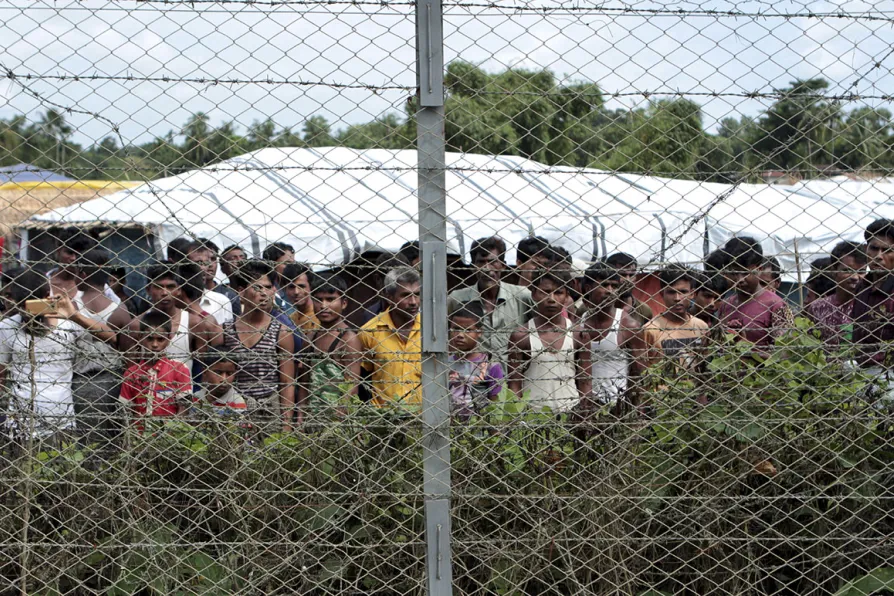
 Rohingya refugees gather near a fence during a government organised media tour, to a no-man's land between Myanmar and Bangladesh, near Taungpyolatyar village, Maung Daw, northern Rakhine State, Myanmar, June 29, 2018
Rohingya refugees gather near a fence during a government organised media tour, to a no-man's land between Myanmar and Bangladesh, near Taungpyolatyar village, Maung Daw, northern Rakhine State, Myanmar, June 29, 2018
MYANMAR’S Rakhine state, which is home to the Rohingya minority and engulfed in a conflict between government forces and a powerful ethnic group, could face an imminent acute famine, the United Nations Development Programme (UNDP) has warned.
In a damning report published on Thursday, the UN agency says that “a perfect storm is brewing” that has put western Rakhine “on the precipice of an unprecedented disaster.”
The report, titled: Rakhine: A Famine in the Making, points to a chain of interlinked developments, including restrictions on goods from elsewhere in Myanmar and from neighbouring Bangladesh, an absence of income for residents, hyperinflation, significantly reduced food production and a lack of essential services and a social safety net.














